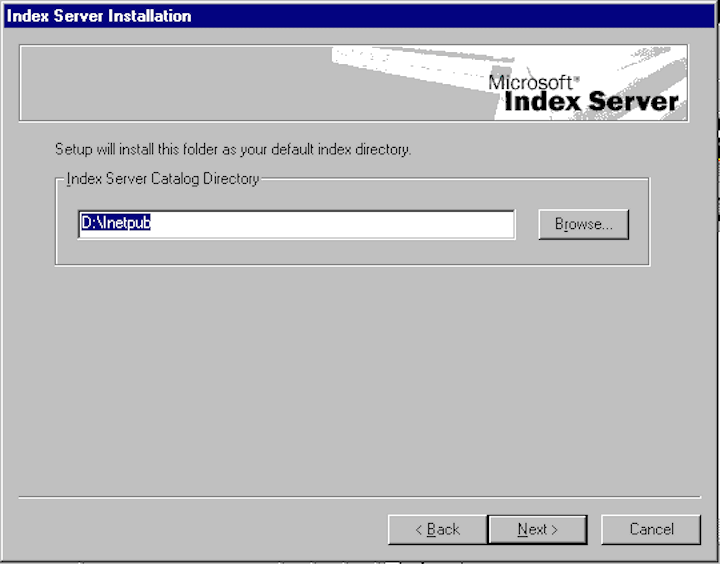Playing The Fool Again
I’m building a new little venture right now and, for the first time in years, I’m flipped out excited. No no not because I think it will change the world and make me stupid rich - no I’m just excited to build it because it’s fun and I like to build things. And dammit I’m having a great time.
So much so that I’m blogging again, and given the burnout that I’ve been dealing with over the last few years.. well that is no mere trifle.
The deal is this - I think I’ve finally figured out what has been bogging me down, fucking my head up and sapping my energy for doing… well anything really. And it’s this: I think I know too much. Or, put another way, I think too much.

I’ve spent the last 7 years of my career studying and sharing what I know through blog posts and videos and you know what? That was a good time. The problem with that, however, is that you tend to retain some of the things you learn. And after a while… the noise… oh MY GOD THE NOISE…
So, while on this little trip of mine I decided to read a wonderful book called Zen Mind, Beginner’s Mind which, apparently, is one of the foundational Zen books for westerners. I heard about it while reading an article about Steve Jobs, and apparently this book and its author were a very big influence on him and what he did at Apple.
Within 5 minutes my head was spun sideways:
In the beginner’s mind there are many possibilities, but in the expert’s there are few
I don’t think I’d ever call myself an expert in anything, but I do know that I like to learn things. The point here is still quite valid: the more you know, the less you believe.
Back Then, When I Was Dumb(er)
I thought about this the other day when reading Gary Bernhardt’s Twitter stream:
I wish it were possible to communicate the sense of unrestricted possibility that was so prevalent in software as recently as the late 90s.
— Gary Bernhardt (@garybernhardt) January 23, 2015
I lived that. I’m not proud of the software I wrote - most of it was utter shit by today’s standards. But I remember how everything was changing, the world was opening up and I felt like if I just gave it some time, pried open a few books for code samples, that I could build some seriously amazing stuff.
In software terms I didn’t, but to my clients - it was pure magic. And these weren’t small clients either, they were quite large. I sat in meetings of 30 or more developers at Fortune 20 companies, flew to Chicago and New York from San Francisco regularly and was trusted to oversee multi-million dollar projects.
We built simulators using Visual Basic of all fucking things! With Lernout-Hauspie voice recognition and SOAP wire ups to an ASP Classic backend! It was XML madness with shouting at 2am to get that fucking thing working an on the server!!!!
We created the very first data-driven web app on the intranet of a major phone company (the largest baby bell in 1998) using Active Server Pages and SQL Server with some ActiveX love on IE4. Wow, just writing this right now is making me giggle - the code… was so very… wow… but man did it make some magic happen.
And that’s the thing: it literally made people cry who were used to working on main frame silliness and enterprise grade crapware. We had this new thing called the web and we were going to rock this shit. And rock it we did! I sat in a Usability Survey at this very big baby bell with cameras pointed at all parts of the test subject and watched them find the answer to “how do I install a phone line in my boat in the marina?”.
I had pulled in over 10,000 text file dumps from their current main frame system and I used Windows NT4 with IndexServer to scan the files - which took about 10 minutes total. I then hooked up Active Server Pages to THAT and had a query that returned in 20 milliseconds. When I demoed this to my client he literally punched me. And we made the user cry with the speed and ease of use of our app.

That’s right… breathe it in…
That’s the best I’ve ever felt doing my job. It was glorious. And while the software I wrote was crap by today’s standards I was on fire with the possibility that existed with my career.
And now here I am in 2015 writing blog posts on JavaScript. God damn that’s really depressing.

Yo. JavaScript?
Seriously. WTF.
What the hell has happened here? Yeah yeah I know JavaScript is a fine language and yeah yeah yeah I know you can make it sing and dance if you focus on the right things etc. That’s what I’ve been doing for the last few years, I get it. I guess I figured that, 16 or so years on we might have done something… you know… relevant with the web. Maybe you think we have, I don’t.
Perhaps I expect too much, or maybe I haven’t tried hard enough. It seems like all the great things have happened and all that we’re doing these days is porting all that great shit backwards to JavaScript.
I know, hot wind and whining don’t solve anything, and rather than change the world to suit me perhaps I should try, once again, to have some fun. Which brings me back to this quote:
n the beginner’s mind there are many possibilities, but in the expert’s there are few
Possibilities. Back then there were so many - you knew the technology was crap but you also believed it would get better as time went on. In many ways it has, in many ways it hasn’t (see 3 paragraphs above).

Repaving My Brain
So I’ve decided to repave. This doesn’t mean I’m rejecting the things I’ve learned and the things I’ve written about/made videos about - nope those things are all very relevant and real - things you should know.
I’m simply shoving those things out of the way because they are causing me to smother my inspiration, my belief in impossibility and my willingness to do completely stupid things because they are there. Note that I’m not saying the things I know are bad - it’s my attention to that knowledge which is destroying my inspiration.
I like how John Sonmez puts it:
The problem is that when we start out as software developers we don’t know the “right way” to do things so we are less constrained in what we do. We just march forward and go do things.
As we start to learn the “right way” to do things, we are often stifled by that knowledge and the constraints it brings and that causes us to be less productive or to over engineer and design solutions to problems.</blockquote> This very sentiment was echoed in Steve Jobs amazing commencement address to the graduating class of Stanford in 2005:
When I was young, there was an amazing publication called The Whole Earth Catalog</em>, which was one of the bibles of my generation. It was created by a fellow named Stewart Brand not far from here in Menlo Park, and he brought it to life with his poetic touch. This was in the late 1960’s, before personal computers and desktop publishing, so it was all made with typewriters, scissors, and polaroid cameras. It was sort of like Google in paperback form, 35 years before Google came along: it was idealistic, and overflowing with neat tools and great notions.
Stewart and his team put out several issues of The Whole Earth Catalog, and then when it had run its course, they put out a final issue. It was the mid-1970s, and I was your age. On the back cover of their final issue was a photograph of an early morning country road, the kind you might find yourself hitchhiking on if you were so adventurous. Beneath it were the words: “Stay Hungry. Stay Foolish.” It was their farewell message as they signed off. Stay Hungry. Stay Foolish. And I have always wished that for myself. And now, as you graduate to begin anew, I wish that for you.
Stay Hungry. Stay Foolish.
I’m going to be foolish for a bit. In fact I’ve already started in both my personal and professional life. I’m building an idea that I think could be really fun - and we’ll see. It might suck, it might not.
But I’m having fun and that’s what this career is all about.